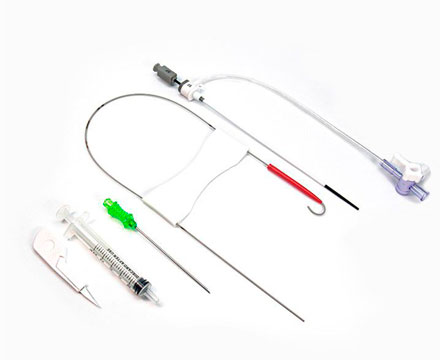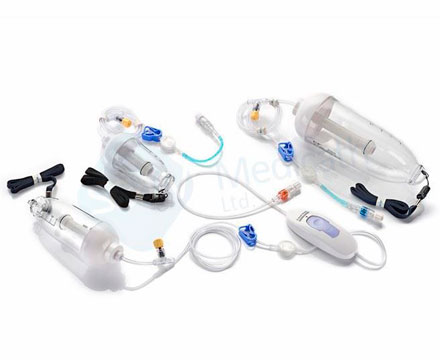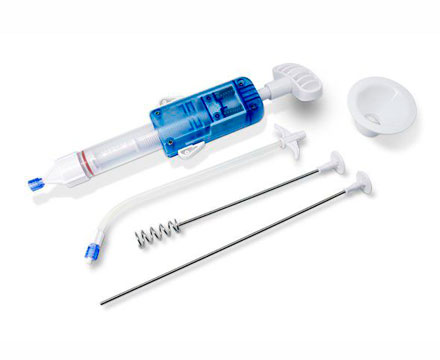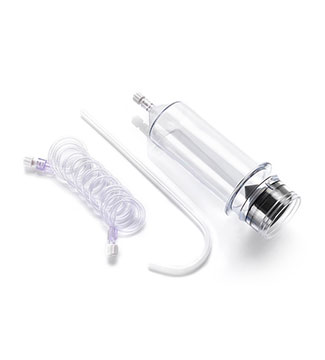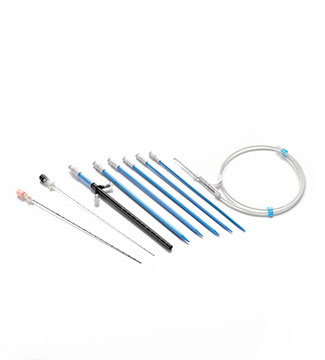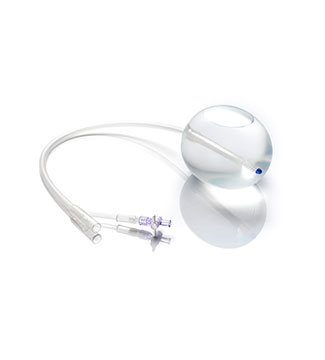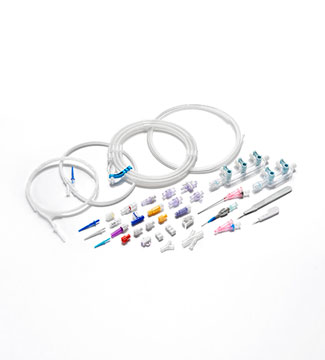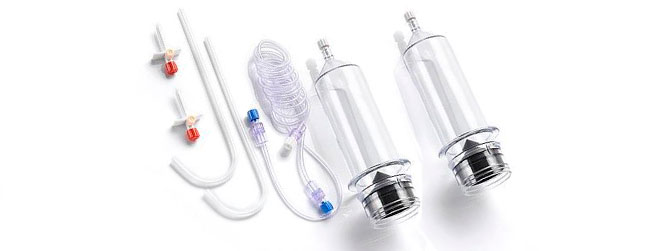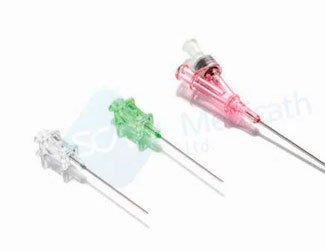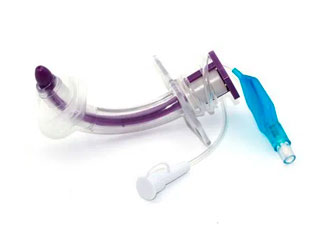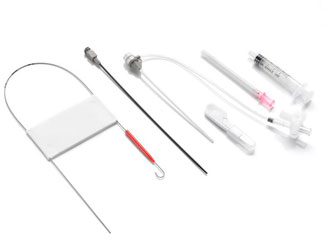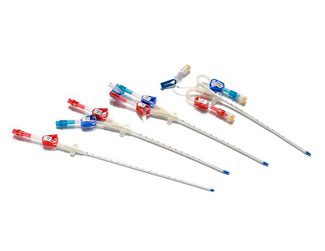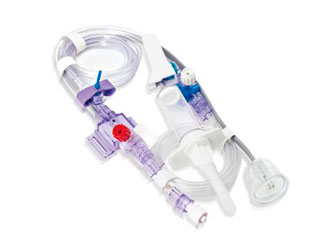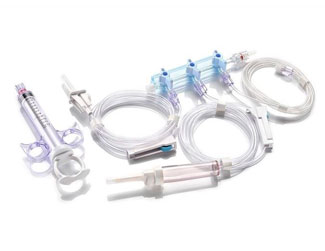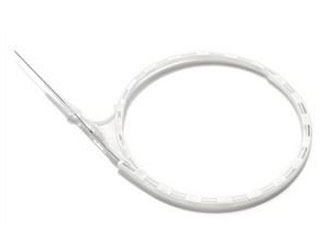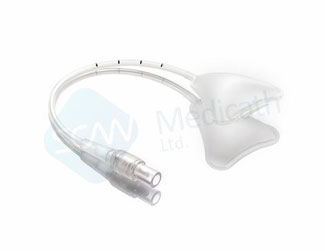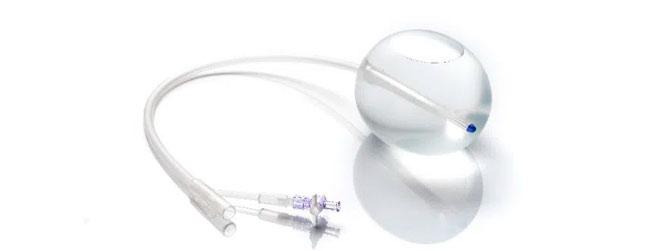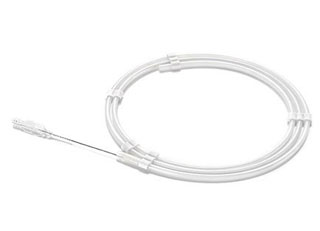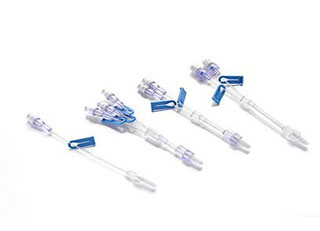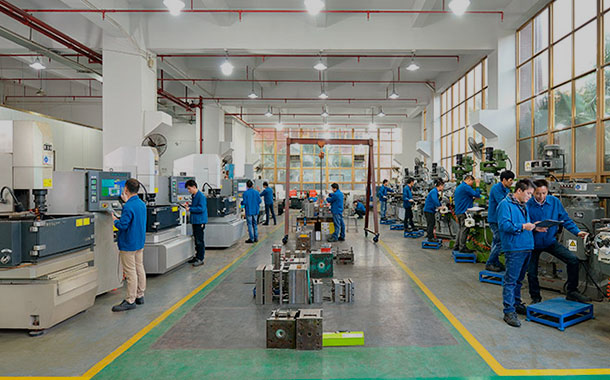Angiographic Catheter and Guide Catheter
Although patients with some vascular-related diseases may be diagnosed by other methods, such as CT, MRI, EKG, ultrasound, etc., before or during specific interventional medical treatment, such as percutaneous transluminal coronary angioplasty (PTCA), in order to clarify the specific location and degree of the disease, it is often necessary to inject contrast agent before and during the operation, guide accurate treatment through DSA development.
PTCA Balloon Provideds The Basis For Further Treatment
As shown in the figure, the site of coronary stenosis is achieved by injecting a contrast agent through the angiographic catheter and under the DSA equipment. It not only further clarified the diagnosis, but also provided information such as the location, length, and diameter of the lesion, which provided the basis for further treatment - dilating the stenosis lesion with a PTCA balloonand implanting the stent.
The angiographic catheter has appropriate hardness, elasticity, flexibility, and torsion control force. The catheter itself has good X-ray impermeability and high development performance; The angiographic catheter is generally composed of three layers: the outer layer: special polyethylene plastic material, which is related to the shape and hardness of the catheter, and the friction with the intima of blood vessels; Middle layer: steel wire braided structure to ensure that the conduit will not collapse and break, and ensure that the conduit can withstand a certain pressure; Inner layer: Nylon PTFE coating. Play a certain role in lubrication, reduce the friction when the contrast medium passes through and maintain the flow.
In order to better enter the blood vessel, the head end of the pigtail angiographic catheter is designed into different shapes and sizes for different coronary artery branches or peripheral arteries. When selecting the angiography catheter, the doctor needs to select the appropriate shape and size of the head end according to the lesion location, the vascular direction of the organ, or anatomical characteristics.
Structure Of The Guide Catheter
The structure of the guide catheter is similar to that of the contrast tube, but the manufacturing process of the guide catheter is higher. When the outer diameter is the same, the inner cavity of the guide catheter is required to be larger in order to accommodate the guidewire, balloon, stent, and other equipment. After treatment, a contrast agent can also be injected through the guide catheter to observe the treatment effect.
Established in 1996 and headquartered in Shenzhen, SCW MEDICATH LTD is one of the leading medical consumables manufacturers China to develop and manufacture central venous catheters, blood pressure Transducer and many other products in China. As a professional medical manufacturer, SCW MEDICATH has been specialized in the field of Intervention, Anesthesiology & Critical Care, Obstetrics & Gynecology, Urology, Medical Imaging, Orthopedics, and other high-value medical consumables. At present, more than 60 domestic registered products, and more than 30 CE certified products. SCW is certified by ISO13485 Quality System Certificate and CE Certificate. Products are sold across China and exported to more than 80 countries and regions.

 English
English  日本語
日本語  한국어
한국어  français
français  Deutsch
Deutsch  Español
Español  русский
русский  português
português  العربية
العربية  tiếng việt
tiếng việt  ไทย
ไทย  Malay
Malay  हिंदी
हिंदी 
